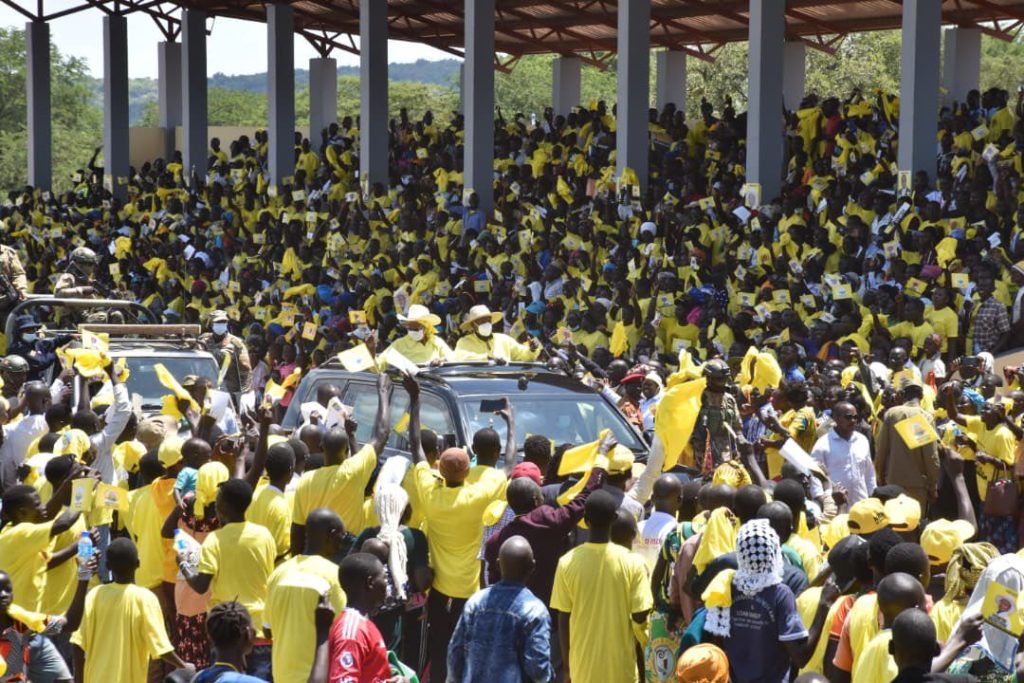President Yoweri Museveni has positioned Madi-Okollo District as a testimony of what sustained government investment can deliver, saying the area is steadily shifting from a neglected rural outpost to a growing hub of basic infrastructure and community enterprise.
Addressing residents at Ajai Stadium, the President said the most visible signs of progress—electricity lines cutting across villages, murram roads connecting markets, and the widespread use of mobile phones—point to a gradual but firm transformation anchored on peace and security.
“When I come here and see electricity poles, a working road, and people actively communicating on phones, I see a community that is ready for take-off,” he said, suggesting that the next NRM administration would build on these gains with deeper social and economic investments.
Museveni highlighted that Madi-Okollo now boasts 95 primary schools—69 of them government-run—and 16 secondary schools serving the majority of the parishes.
He praised community resilience and said education remains a pillar in the district’s long-term human capital development.
Water access, often a major pain point in rural districts, was another achievement he pointed out, noting that all 223 villages in the district now have safe water points.
To move beyond consumption to production, he said government is establishing solar-powered irrigation schemes in Aliboro, constructing an earth dam in Yachi, and setting up a communal valley tank in Peera.
According to Museveni, such investments fit squarely within the NRM’s ideological framework of Patriotism, Pan-Africanism, Democracy, and Socio-economic Transformation.
The President also shifted focus to income generation, revealing that UGX 14 billion has already been injected into Madi-Okollo through the Parish Development Model to fight household poverty.
Beyond subsistence farming, he urged local residents—especially those living near water bodies—to embrace fish farming as a high-value enterprise the government is ready to support.
“Fish farming is not just food; it is income. And for a place like Madi-Okollo, it can be a new economic lifeline,” he said.
By framing the district’s recent gains as a launchpad for broader economic empowerment, Museveni portrayed Madi-Okollo not just as a beneficiary of government programs, but as a potential blueprint for rural transformation across Uganda.
